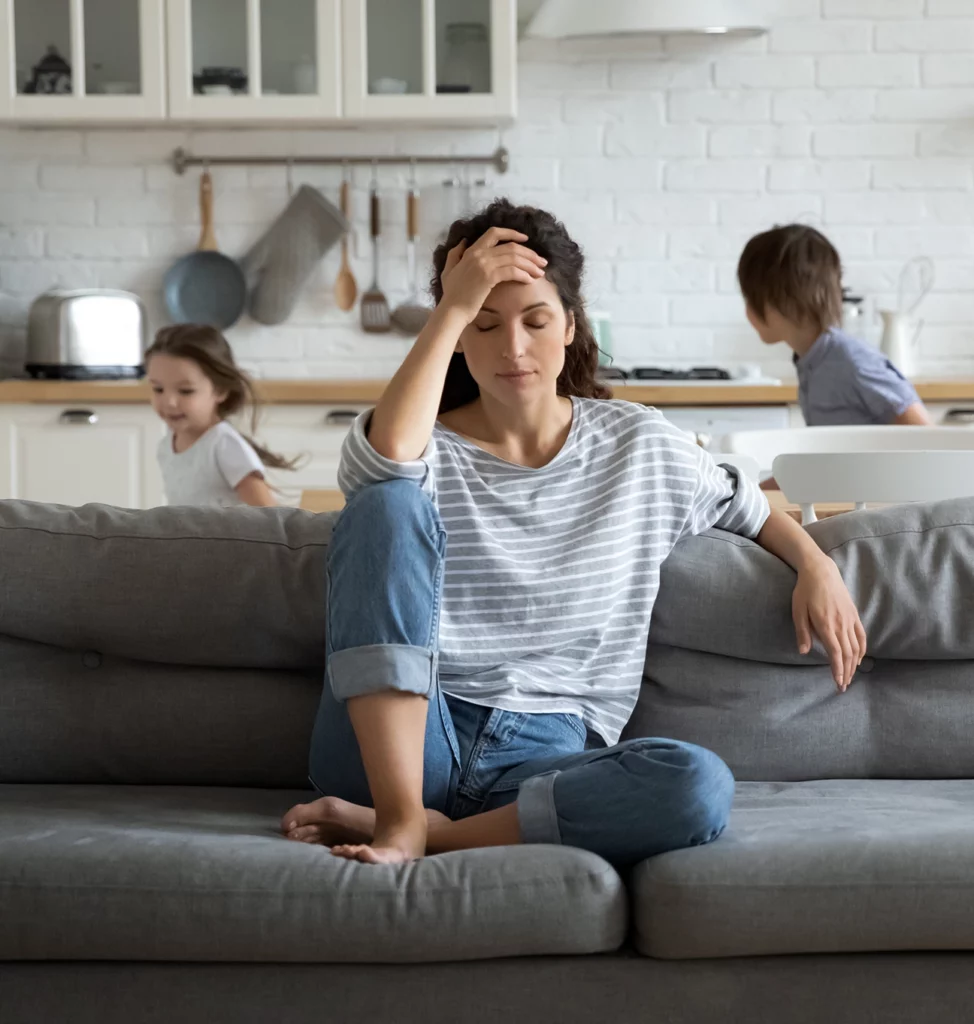
Key Findings from the 2024 APA Annual Mental Health Poll
The 2024 results of the American Psychiatric Association’s annual mental health poll indicate a growing sense of anxiety due to stress among U.S. adults. In 2024, 43% of adults reported feeling more anxious than the previous year; many of the surveyed adults attribute this anxiety to increased stress. Their top 5 stressors include:
Adults identified stress (53%) and sleep (40%) as lifestyle factors that have the largest impact on mental health. Younger adults (18-34 years old) are more likely than older adults (50+) to say that social connection has the biggest impact on their mental health. Despite increasing anxiety levels, only 24% of adults report that they talked with a mental health care professional in the past year. Younger adults are more than twice as likely as older adults to have sought such support.

Survey Methodology
This annual poll was conducted from April 9 to 11, 2024, among a sample of more than 2,200 adults. The survey is complemented by APA’s Healthy Minds Monthly series, conducted by Morning Consult on behalf of APA.
pray in private
play online games for a few hours
exercise or play sports
shop recreationally
Reduce stress and build resilience with practical, science-based tools from AIS and our partners. Start today by exploring our resources designed to help you manage stress effectively.
Source: Statista, Preeti Vankar
A study in January 2021 surveyed adults aged 50 to 80 regarding negative feelings they had experienced for several days or more within the past two weeks. The results were stark:
According to Jennifer Tripken, Associate Director of the National Council on Aging’s Center for Healthy Aging, “the unique relationship between stress and aging means that older adults and their families, friends, and caregivers should pay particular attention to what causes it, how to recognize it, and what to do about it.”
Stress harms body’s ability to respond to certain kinds of inflammation that lead to age-related conditions. Thus, more stress in seniors can lead to more health problems, such as cardiovascular disease, arthritis, and dementia.
Supporting seniors in your life by encouraging stress management practices, gentle physical activity, and social interaction can significantly improve their stress levels and overall health.

Being Outdoors
Physical Activity
Hobbies, Skills, and/or Projects
Being Alone
Pets
Stress affects everyone differently, and the first step to managing it is understanding how it impacts you. Explore science-based research and information designed to help you understand and manage your stress. Choose your category and begin your journey toward better stress management today.

References: Vaillant GE. AGING WELL: Surprising Guideposts to a Happier Life from the Landmark Harvard Study of Adult Development. Little, Brown and Co. New York, 2002. Health and Stress Newsletter by The American Institute of Stress, #5, #7 2005, #10 2002, #7 2000, #9 1999.
The Harvard Study of Adult Development is the longest and most comprehensive investigation of the aging process ever conducted. Since the 1930s, researchers have closely followed more than 800 men and women from adolescence to old age to seek clues about behaviors and activities that are associated with healthy longevity.
While George Vaillant, a former director of this project and author of Aging Well, was surprised to find that keeping mentally active and having lots of friends were incredibly influential factors for improving longevity. A happy marriage or good long-term relationship at age 50 was a leading indicator of being healthy at age 80, whereas a low cholesterol level had very little significance.
Why would a happy marriage or having lots of friends promote healthy aging? While stress can accelerate the aging process, having strong support from friends and family can reduce the harmful effects of stress. British researchers reported that in a study of more than 180 senior citizens who received the influenza vaccine, those who were happily married developed higher antibodies, and participants who had experienced a significant bereavement had poorer antibody responses.
Unlock benefits tailored to your level of expertise, whether you’re managing your own stress or helping others do the same. Elevate your credentials and join a renowned community in evidence-based stress management.
Receive expert stress tips, science-backed stress management resources, exclusive deals, and more.
Master your stress with AIS.



